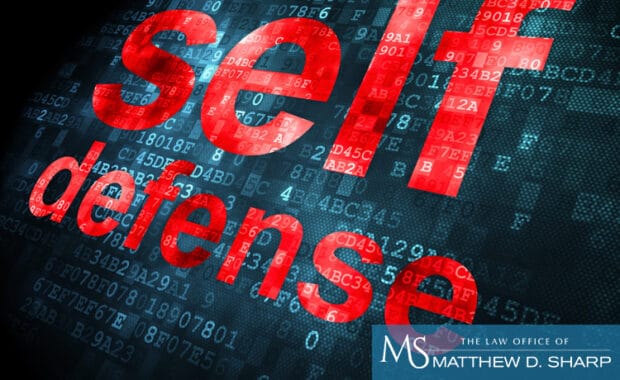
Understanding your rights when it comes to police search and seizure in Texas can be confusing, especially if law enforcement attempts to overstep their authority and claim that they have the right to search without your permission.
This article is intended to help you understand the laws around police searches and your rights in Texas. If you aren’t sure about your Fourth Amendment rights under the U.S. Constitution, we invite you to contact Houston criminal defense attorney Matthew Sharp for free legal advice.
How do police officers get a search warrant?
To obtain a search warrant in Texas, a law enforcement officer must present evidence sufficient to establish probable cause to a court of law. Sometimes, it’s not practical for an officer to present their evidence to a judge. In cases like this, the officer may obtain a search warrant from a magistrate of the court. Magistrates are court officials who are permitted to perform certain judiciary duties because they are considered neutral and detached.
If the law enforcement officer can demonstrate probable cause to the judge or magistrate, a warrant will be issued.
What is a “reasonable” search?
A search warrant is needed whenever law enforcement officers want to conduct a search or seizure. The Fourth Amendment defines “unreasonable” searches and seizures as those that are carried out without the approval of the court in the form of a search warrant.
For a search to be considered reasonable, a warrant is almost always necessary. This rule protects private citizens from frivolous, unnecessary, or harassing searches.
Are there limits to a police search?
Yes, state and federal law, along with the criminal procedural rules, stipulate that a search warrant must specify:
- The owner of the property to be searched
- The physical address of the property where the search can be conducted
- The types of evidence the officers are allowed to search for
- The time in which the search must be conducted
Additionally, the search can only occur in the area or areas described in the warrant—and nowhere else.
For example, if the warrant specifies that officers can search a bedroom and kitchen, officers cannot legally enter any other areas of the home or the vehicles parked on the property unless the evidence is plainly visible.
However, there are specific times when law enforcement can conduct a search without a warrant. For example, officers can conduct searches of a person being arrested or a person passing through an airport or national borders.
Can police search my house without a warrant?
In most cases, no. Police can conduct a search if given permission to do so in a home, a vehicle, or other locked areas of a property, but residents have the right to refuse.
Below are some situations where officers may legally be able to enter your property without a warrant:
- If someone is in danger of physical harm or possibly death, officers can enter a home.
- If a suspect is fleeing, officers can enter the home or property to apprehend them.
- If the illegal evidence is in plain sight, officers can seize it.
If law enforcement officers have a warrant, they are able to seize the items without the owner’s permission. However, locked items on the premises cannot be unlocked for purposes of a search without a specific warrant.
Can police destroy property during a search?
Police can legally destroy property during a search if it’s necessary to carry out the search, such as breaking down a door or opening locked containers. However, any destruction must be reasonable and related to the search for evidence.
If the damage is excessive or unnecessary, it could be challenged in court, and you may be entitled to compensation for the damages through a civil lawsuit.
When can a police officer search your car without a warrant?
People often wonder when police are legally allowed to search vehicles. In most cases, a warrant is needed to search a vehicle. However, there are some limited situations where an officer might have probable cause to perform a search without a warrant, including:
- If an officer smells marijuana when approaching a vehicle or it’s in plain view, they have probable cause to search the vehicle for drugs and drug paraphernalia.
- If a vehicle occupant has been placed under arrest, law enforcement officers may search the vehicle to find items that may be relevant to the crime.
- If officers suspect that the driver or occupants are carrying weapons, they can legally search the vehicle.
- If the vehicle owner gives their consent, a police search of the vehicle becomes legal.
- When a vehicle becomes lawfully impounded, officers may legally search the vehicle or perform an inventory search.
Sometimes, officers do not have probable cause or legal permission to search a vehicle, but they may attempt to justify their actions by falsely claiming one of these exceptions. If such a situation happened to you, a Houston defense attorney may be able to prevent seized items from being used as evidence.
Understanding Your Rights During Police Encounters in Texas
Learn about your rights if you’re pulled over or arrested in Houston.
What laws exist to prevent unlawful search and seizure?
The U.S. Constitution contains very specific language concerning the restriction of governmental power. In the Fourth Amendment of the Bill of Rights, the authors of the Constitution created several prohibitions against unreasonable searches of private citizens and their property.
The Fourth Amendment also forbids government seizure of private property without a valid reason. This rule is most frequently applied to evidence gathering. These protections are designed to preserve the individual’s right to privacy and to mandate the due process of law.
It states:
“The right of the people to be secure in their persons, houses, papers, and effects, against unreasonable searches and seizures, shall not be violated, and no Warrants shall issue, but upon probable cause, supported by Oath or affirmation, and particularly describing the place to be searched, and the persons or things to be seized.”
In addition to the rights outlined in the Constitution against unlawful search and seizure, the following federal laws are also in place to ensure proper procedures are followed by law enforcement during searches.
Federal search and seizure laws
According to the Federal Rules of Criminal Procedure, Rule 41e:
- The warrant must be issued by a magistrate or state court judge to the officer executing the search.
- The information included in the warrant must entail the identity of the property and items to be seized and who receives the seized items.
- The search and seizure must occur within the designated length of time during daylight hours.
According to Rule 41f: Search and Seizure:
- The executing officer must enter the date and time of the search and seizure.
- The officer present must identify the items seized and prepare them for evidence in the presence of another officer.
- If computers or other electronic devices are seized containing valuable data evidence, the inventory must describe the device. The stored data may be copied.
- The individual owning or residing on the searched property must receive a copy of the warrant and a receipt for the items seized.
- Upon completion of the search and seizure, the warrant must be returned to the issuing judge along with a copy of the inventory detailing the items taken.
Can evidence obtained in an illegal search be used against me?
In most cases, no. The search warrant requirement is enforced by a provision called the exclusionary rule. This rule states that any evidence gathered during an unwarranted search or seizure cannot be used in court to prosecute the owner of the property. Even incriminating evidence must be thrown out if it’s collected improperly or under false pretenses.
In such cases, a defense attorney can ask the judge for a suppression motion, and they may also be able to file a motion to have the property returned. Sometimes, improperly gathered evidence can even lead to a mistrial or dropped charges. For example, if the only evidence in a case is the testimony of alleged victims and a warrant was handled improperly, a defendant may have a better chance of facing those charges.
Consulting with a defense attorney is the best way to explore these options.
Were you the victim of an illegal police search in Houston? We can help!
If you’re a Houston resident who believes your constitutional rights have been violated during an unlawful search and seizure, contact The Law Office of Matthew D. Sharp. Interpretation of these laws is complex, but experienced Houston criminal defense attorney Matthew Sharp has the knowledge and experience needed to evaluate the situation and determine if police stepped outside the legal limits when they searched your property.




